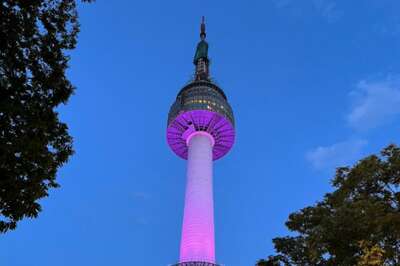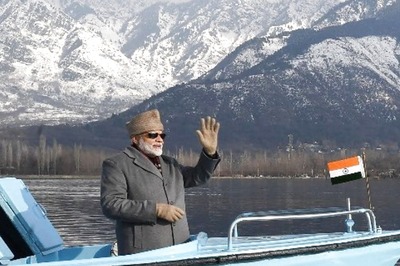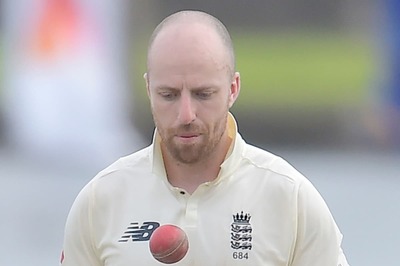
views
Former civil servant and author Ramesh Inder Singh has termed Operation Blue Star, which destroyed the building of the Akal Takht Sahib in the Golden Temple Complex and cost lives on both sides, an “ill conceived, poorly planned, terribly executed” operation that left a mark on the Sikh psyche. He said it was “completely avoidable”.
In an exclusive interview with News18, Singh spoke about his book ‘Turmoil in Punjab: Before and After Blue Star, an insider’s story’ which he penned 38 years after Blue Star. Singh was the Deputy Commissioner (DC) in Amritsar during Op Blue Star.
The author saw the operation unfold before his eyes as he took charge as DC Amritsar just two days before the operation in June 1984. In his book, Singh has revealed that many of the organisations were out of the picture when it came to planning or execution of the Operation. “The DC before me did not know, the Border Security Force (BSF) and Central Reserve Police Force (CRPF) did not know. They told us on June 5 that the Army will enter the Golden Temple Complex.”
“There was no proper plan. They presumed that when the Army encircled, the militants would surrender. They probably did not know about the tradition of martyrdom in Sikhism. Sikhs never surrender,” he said.
The author has further mentioned that Gen Shabeg, Bhindranwale’s military advisor and Maj Gen Brar, who had the command during the action, fought the Bangladesh war together. “I have written that Gen Brar should have tried to contact Gen Shabeg,” he said.
In the book, the author has mentioned how the operation was planned on Guru Arjan Dev ji’s martyrdom day, when pilgrims had come to the Golden Temple in large numbers. They were stuck in the temple complex and ultimately led to many civilian deaths. He further mentioned how the temple complex was closely surrounded by residential buildings and people who lived there, too, were stuck due to the curfew.
The author further mentioned various suggestions made by different officers in the armed forces during the planning of the operation as to how it could be done leading to minimal damage and hopeful arrests of the militants. But the author mentioned how all these suggestions were ignored.
The book gives detailed description of the events that led to the military action on Golden Temple and the events that unfolded.
ORIGIN OF THE PUNJAB PROBLEM
The author said that such incidents originate in the country. “The local conditions and political factors contribute to it. But your enemy countries try to exploit it. Pakistan exploited the situation here. They provided the arms and training,” he said.
In the book, the author revealed that a few years ago, the same kind of operation was conducted in Mecca, where fundamentalists held fort in the holy mosque. “I came across an intelligence input during my research. The Saudi Arabian army took help from Pakistani and French commandos. Pakistan learnt from this experience that if a religious sacred space is attacked, the reaction is much more,” he said.
Singh mentioned that Sant Bhindranwale used to stay at Guru Nanak Niwas (an administrative space) within the Golden Temple Complex. “As per the intelligence input, some of the organisations linked to Pakistan threatened Bhindranwale after which he shifted to Akal Takht. And then ultimately, due to the mishandling, the Akal Takht building was destroyed,” said the author.
Was there a government hand in Bhindranwale’s popularity? Singh said the origin of the Punjab problem was the clash between the Sikh organisations and Nirankaris in 1978. He maintained that if the government had tackled it and the culprits were convicted, the situation would not have reached such a point.
The government, he said, did not tackle it in time. “In 1981, Akali Dal put forth the Sikh demands. In 1982, they put forth only 10 demands. Some 26 meetings took place with the government and government representatives, including with Mrs Gandhi and Rajiv Gandhi, but the issue was not resolved until 1984. There was no demand that couldn’t have been resolved through talks. Ultimately, the same demands were accepted in the Rajiv-Longowal Accord,” said Singh.
KHALISTAN
It is well documented that Bhindranwale never demanded Khalistan, but never opposed the idea. He used to say if there was an Army action on the Golden Temple, the foundation for Khalistan will be laid. The book deals with this issue too.
Singh said, “This whole movement was not Khalistan movement. The movement started with the clash. Then, the Akali demands were mishandled. Sikhs were hurt with the Army action on the Golden Temple complex, and the killings of Sikhs on the streets of Delhi after Mrs Gandhi’s assassination. There was a consolidation of Sikh consciousness. The community, which felt and treated itself as the sword arm of India, was burnt alive and killed on the roads of Delhi. But still there was no talk of Khalistan.”
He mentioned in the book that in 1985, a survey was conducted by a Delhi University professor, and only 5% people favoured the demand for Khalistan.
Should Simranjit Singh Mann’s 2022 victory be considered support for the idea of Khalistan? Singh’s answer is ‘no’. He said that Mann has had a dichotomous stand. “When he was released, he wrote a letter to the Chief Justice of India (CJI) and owed allegiance to the Constitution of India. Even now, after going to Parliament, he took the oath. The Supreme Court has also said that if a single man raises pro-Khalistan slogans, it is part of their fundamental rights. So it gives them the freedom to say so. But his victory should not be seen as Khalistan’s victory.”
He further said that the death of actor Deep Sidhu, who was supporting Mann during assembly elections, and singer Sidhu Moosewala, and the division of votes among several parties were the factors that helped him win.
Talking about the new entrant Amritpal Singh, who is making headlines in Punjab, the author said, “I don’t know much about him. But there are reasons for the resonance. Frustration in society and non-delivery on people’s demands makes the youth look for leaders. The government should address their demands within the framework of the Constitution.”
The author, in conclusion, said there should have been a truth and reconciliation commission after Op Blue Star. “Truth should’ve come out. There should have been proper reconciliation, rehabilitation and compensation. Most importantly, asking for forgiveness! I feel if Mrs Gandhi had asked for forgiveness when she came to the temple complex, Sikhs might have forgiven her. Who knows?”
He said that nation building exercise should never be divisive. “It is important for all political parties to keep politics positive and constructive.”
Read all the Latest News India and Breaking News here



















Comments
0 comment